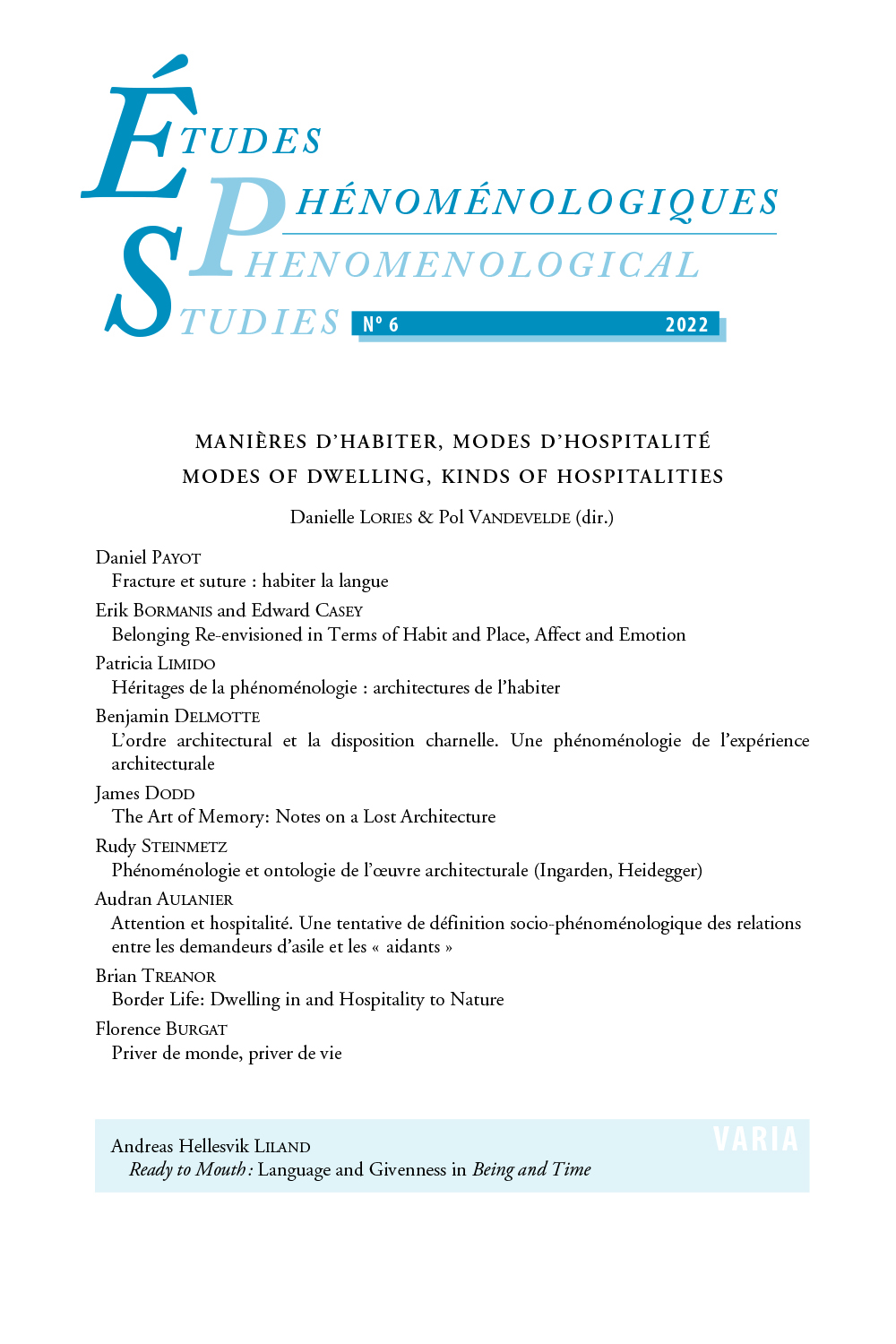 previous article in this issue previous article in this issue | next article in this issue  |

Preview first page |
Document Details : Title: Apperceptive and Non-Apperceptive Consciousness Author(s): DAHLSTROM, Daniel O. Journal: Etudes phénoménologiques - Phenomenological Studies Volume: 1 Date: 2017 Pages: 167-192 DOI: 10.2143/EPH.1.0.3188847 Abstract : The topic of this paper is a difference among some standard theories of consciousness. For some theories of consciousness a person’s being in a conscious state does not require her awareness of that state; for other theories it does. Exploiting terminology used by Leibniz, I refer to the former as non-apperceptive theories of consciousness, the latter as apperceptive theories. After reviewing how prominent theories of consciousness divide along this fault line, I present alleged instances of non-apperceptive consciousness and a contemporary case for construing them as such. I then turn to the case for a prevailing view of Husserl’s phenomenological theory of consciousness, according to which consciousness invariably is pre-reflectively or reflectively apperceptive. While acknowledging the strong textual support in favor of this interpretation, I contend that Husserl’s theory, under this plausible interpretation of it, fails to demonstrate that all consciousness is implicitly or explicitly apperceptive. There is no one-size-fits-all sort of consciousness, and the evidence supports a disjunctive theory that countenances apperceptive and non-apperceptive forms of consciousness. My aim is not to deny the considerable merits of Husserl’s phenomenological analyses of consciousness, but to suggest that an adequate theory of consciousness would preserve those merits without discounting instances of non-apperceptive consciousness. |
 |


